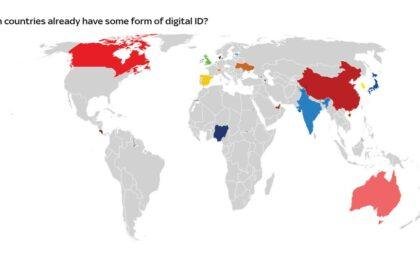Calls for Stronger Regulation on Australian Gas Exports Amid Rising Domestic Prices
In a recent statement that has stirred significant debate within Australian political circles, Labor backbencher Ed Husic has urged the government to take decisive action against foreign entities that purchase Australian gas only to resell it at inflated prices to other countries. This call for intervention highlights a growing concern over domestic energy security and the economic implications of foreign gas sales.
The Context of Rising Gas Prices
Husic’s remarks come at a time when Australian manufacturers are grappling with soaring gas prices, which he attributes to foreign multinationals profiting from the country’s natural resources. Speaking on the ABC’s Afternoon Briefing, Husic emphasized that Australia is paying “extraordinary prices for an Australian resource,” a situation he believes is exacerbated by foreign companies that onsell gas rather than utilizing it domestically.
He proposed a “use it or lose it” policy, suggesting that existing contracts with foreign buyers should be revisited to ensure that Australian gas is prioritized for local consumption. “Japan has done this four consecutive years in a row,” Husic noted, referring to the practice of reselling Australian gas while simultaneously urging Australia not to intervene in these transactions.
Diverging Views Within the Government
Husic’s position stands in stark contrast to that of Resources Minister Madeleine King, who has previously dismissed concerns about Japan’s gas purchases as a “peak conspiracy theory.” In a June 2022 interview with Radio National, King argued that halting gas exports to Japan would not necessarily lead to increased availability for Australian consumers, stating, “that’s just manifestly incorrect … that’s not a joined-up system.”
King has also highlighted the strategic importance of gas exports in bolstering Australia’s regional influence. In a recent interview with the Australian Financial Review, she asserted that energy exports enhance Australia’s relevance in international discussions, particularly concerning regional security. “A strong Japan means a strong Australia and a strong Indo-Pacific,” she stated, underscoring the interconnectedness of energy security and geopolitical stability.
The Economic Implications
The debate over gas exports is not merely a matter of energy policy; it has significant economic ramifications. Australian manufacturers, including major players like BlueScope Steel and Dulux, are struggling to secure competitively priced gas, which is essential for their operations. Husic’s comments reflect a growing frustration among these industries, which are increasingly vocal about the need for government intervention to ensure affordable energy supplies.
The backdrop of this discussion includes the recent government bailout of Swiss mining giant Glencore, which was provided to keep its Mount Isa copper smelter operational. This move has prompted calls from industry leaders, such as BlueScope Steel’s CEO Mark Vassella, for the government to consider implementing an east coast gas reservation policy. Such a policy would require gas producers to allocate a portion of their supply for domestic use, a measure already in place in Western Australia and Queensland.
The Future of Gas Policy in Australia
As the government navigates these complex issues, it is also conducting a gas market review that is open to public submissions. King has indicated that this review will address the challenges facing the east coast gas market, which is currently under strain. “We are determined to fix it to make sure there is an adequate supply of gas at an affordable price for consumers and industry,” she stated.
However, the path forward is fraught with challenges. The Australian Energy Producers have yet to comment on the ongoing discussions, and the government faces the delicate task of balancing the interests of domestic consumers with those of gas producers.
A Broader Perspective on Energy Security
The situation in Australia is not unique; many countries grapple with similar dilemmas regarding energy exports and domestic supply. For instance, the European Union has been re-evaluating its energy policies in light of geopolitical tensions and the need for energy independence. The reliance on foreign energy sources has prompted discussions about sustainability and self-sufficiency, themes that resonate strongly in the Australian context as well.
Japan’s energy landscape serves as a cautionary tale. The country, heavily reliant on imports for its energy needs, has faced significant challenges in securing stable supplies. This dependency has led to a different set of priorities compared to Australia, which has abundant natural resources. Understanding these differences is crucial for formulating effective energy policies that serve both domestic and international interests.
Conclusion
The ongoing debate over Australian gas exports underscores the complexities of energy policy in a globalized economy. As Ed Husic calls for stronger regulations to protect domestic interests, the government must navigate the competing demands of industry, international relations, and energy security. The outcome of this discussion will not only shape the future of Australia’s energy landscape but also influence its standing in the broader geopolitical arena. As the government reviews its gas market policies, the stakes are high for both consumers and producers alike.











